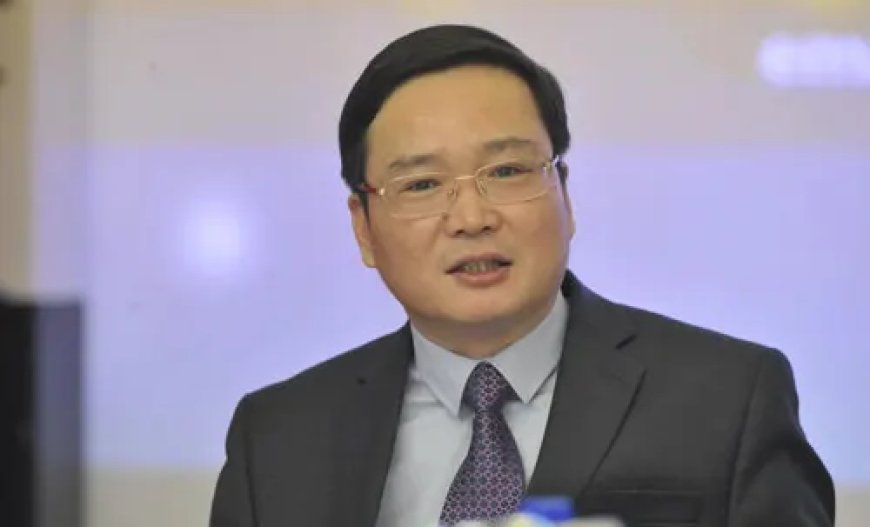Value of CPC 3rd plenum & impact on China-Pakistan relations

1.
Last month, the 20th Central Committee of the Communist Party of China (CPC) held its third plenary session in Beijing, marking a pivotal moment in China's ongoing efforts to deepen reforms and further its modernization agenda.
During the session, active and comprehensive discussions led to the adoption of a Communiqué and a Resolution, both of which call for sweeping reforms to guide China's future development. The session set forth the goal of building a socialist market economy over the next decade, with key priorities for reform and opening up identified. By 2035, China aims to have established a high-standard socialist market economy, enhanced its system of socialism with Chinese characteristics, modernized its governance capacity, and largely realized socialist modernization. These efforts will lay a strong foundation for transforming China into a great modern socialist country by the mid-21st century.
The plenum underscored the crucial role that comprehensive reforms and opening up will play in steering China through global challenges. Over 360 reform measures were introduced as milestones to be achieved by 2029. The CPC reaffirmed its commitment to advancing all-around economic reforms, strengthening democratic governance, fostering a robust socialist culture, improving citizens' livelihoods, and expanding global outreach. The session also emphasized improving mechanisms for fostering new productive forces, integrating the real economy with the digital economy, developing the service sector, modernizing infrastructure, and enhancing the resilience and security of industrial and supply chains.
The plenum highlighted innovation, sustainable development, and domestic consumption as key drivers of China’s future growth. It stressed that education, science and technology, and talent are the fundamental pillars of Chinese modernization. The session called for fully implementing strategies to invigorate China through science and education, develop a high-quality workforce, and pursue innovation-driven development. It also advocated for integrated reforms across education, science and technology, and human resources to achieve key technological breakthroughs.
The session also focused on promoting green development through carbon reduction, pollution control, and the improvement of environmental governance systems. China aims to peak carbon emissions by 2030 and achieve carbon neutrality by 2060, with green development becoming a significant long-term growth area.
Cultural innovation and creativity were also emphasized, with a focus on drawing from traditional Chinese culture. The plenum reaffirmed that Chinese modernization is about both material abundance and cultural-ethical enrichment, aiming to promote comprehensive social progress and human development. The session stressed the importance of staying current with information technology trends, cultivating talent in the cultural sector, and igniting nationwide cultural creativity.
On the foreign policy front, the plenum reiterated that Chinese modernization is based on peaceful development. It affirmed China’s commitment to an independent foreign policy of peace and its dedication to promoting Belt and Road international cooperation. The Communiqué stated that China will continue to uphold humanity’s shared values, pursue the Global Development Initiative, the Global Security Initiative, and the Global Civilization Initiative, and advocate for a multipolar world and inclusive economic globalization, thereby building a community with a shared future for humanity.
The plenary session provided a comprehensive roadmap for implementing reforms and building a higher-standard open economy. The holistic approach adopted aims to realize the Vision of 2035, providing strong institutional support for China’s journey towards becoming a modern socialist country and achieving national rejuvenation.
Chinese modernization is essential to nation-building and development. It addresses the needs of over 1.4 billion people, larger than the population of all developed countries combined. The process aims for shared prosperity, meeting the people's growing aspirations for a better life, and promoting equity and social justice. It seeks both material and cultural advancement, ensuring sustainable development and harmony between humanity and nature. The peaceful development of China sets an example for other nations, especially in the Global South, providing an alternative model for development that emphasizes equality, mutual respect, and win-win cooperation.
The CPC's third plenum also has significant implications for China-Pakistan relations. As an all-weather strategic cooperative partner of China and a key country in South Asia, Pakistan stands to benefit from China’s modernization initiatives. The Belt and Road Initiative and the China-Pakistan Economic Corridor (CPEC) have already transformed Pakistan’s energy and infrastructure sectors. As CPEC enters its second phase, bilateral cooperation will expand into agricultural modernization, industrial growth, mining, science and technology, education, and cultural partnerships, driving Pakistan’s socioeconomic development.
The Global Development Initiative will further support Pakistan in poverty alleviation, capacity building, and green transition efforts. The Global Security Initiative will see China continue to provide political, diplomatic, economic, and security assistance to Pakistan in countering terrorism, maintaining stability, and fostering regional peace.
The plenum also signaled the potential for collaboration in technology and space research, elevating the China-Pakistan relationship into new frontiers. The Global Civilization Initiative will enhance cultural exchanges, academic collaborations, and people-to-people contacts, with more Pakistani students expected to receive training in modern agricultural technology and IT from China.
By deepening comprehensive reforms and advancing the Three Major Initiatives, the CPC's third plenum has injected new momentum into the China-Pakistan relationship. The enduring brotherhood, deep historical ties, and strategic partnership between the two countries are set to grow stronger and yield even greater results in the years ahead. The focus now shifts to implementation and delivery.

















































